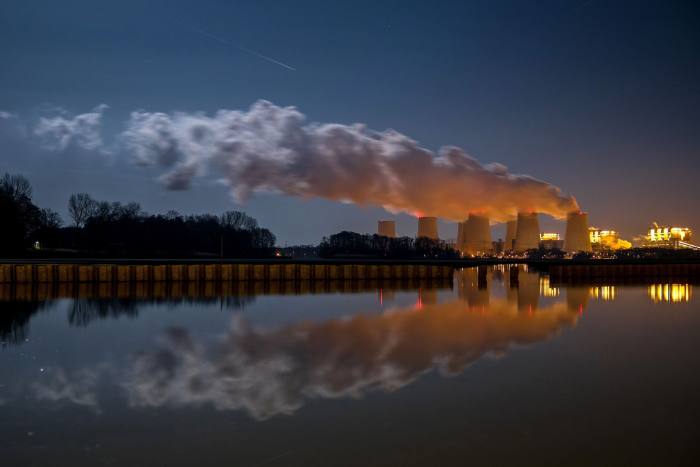[ad_1]
At the age of 90, Warren Buffett does not have time for what he regards as box-ticking exercises. The Oracle of Omaha directly dismissed a shareholder proposal from the likes of California pension titan Calpers at Saturday’s annual shareholder meeting. The proposal demanded that Berkshire Hathaway publish an annual report explaining how the conglomerate’s units were managing climate risks and opportunities.
Buffett waved off the efforts, explaining that Berkshire’s own initiative was making the company greener, particularly in its power and utility segment, Berkshire Hathaway Energy. He may have a point. While some US politicians attempt to prop up coal and other fossil fuels, energy companies themselves are pivoting to green energy. They are propelled by customer demands and increasingly attractive economics.
By 2050, the proportion of US electricity generation derived from hydro, wind power and solar sources will have doubled to 42 per cent, according to the US Department of Energy. The contribution of coal will have almost halved. In 2020, 43 per cent of power capacity in the $18bn revenue BH Energy — which includes utilities across the US west, Midwest and in the UK — already came from green sources. That proportion has almost tripled since 2005 when coal was the majority input.
The costs of wind and large-scale solar power have dropped between 71 and 90 per cent over the past decade. This is according to analysis of levelised costs, the minimum price at which energy must be sold for an project to break even, from investment bank Lazard. Reasons include a substantial fall in component prices and a significant improvement in efficiency.
Power transmission infrastructure must improve if renewables are going to take hold. Buffett made that point, alluding to the $13bn that Berkshire is spending in the next decade in this area. While endorsing decarbonisation, Buffett also went out his way to defend Chevron, the oil supermajor where the company had recently bought stock. Buffett’s sidekick Charlie Munger went further on Saturday, claiming Chevron was “not an evil company†and that he’d be happier to see Chevron employee marry into his family than a top-notch English professor.
Berkshire’s unwillingness to virtue-signal when it comes to climate change may irritate some shareholders but the way it votes with its wallet is more significant.
Lex recommends the FT’s Due Diligence newsletter, a curated briefing on the world of mergers and acquisitions. Click here to sign up
Climate Capital
[ad_2]
Source link






